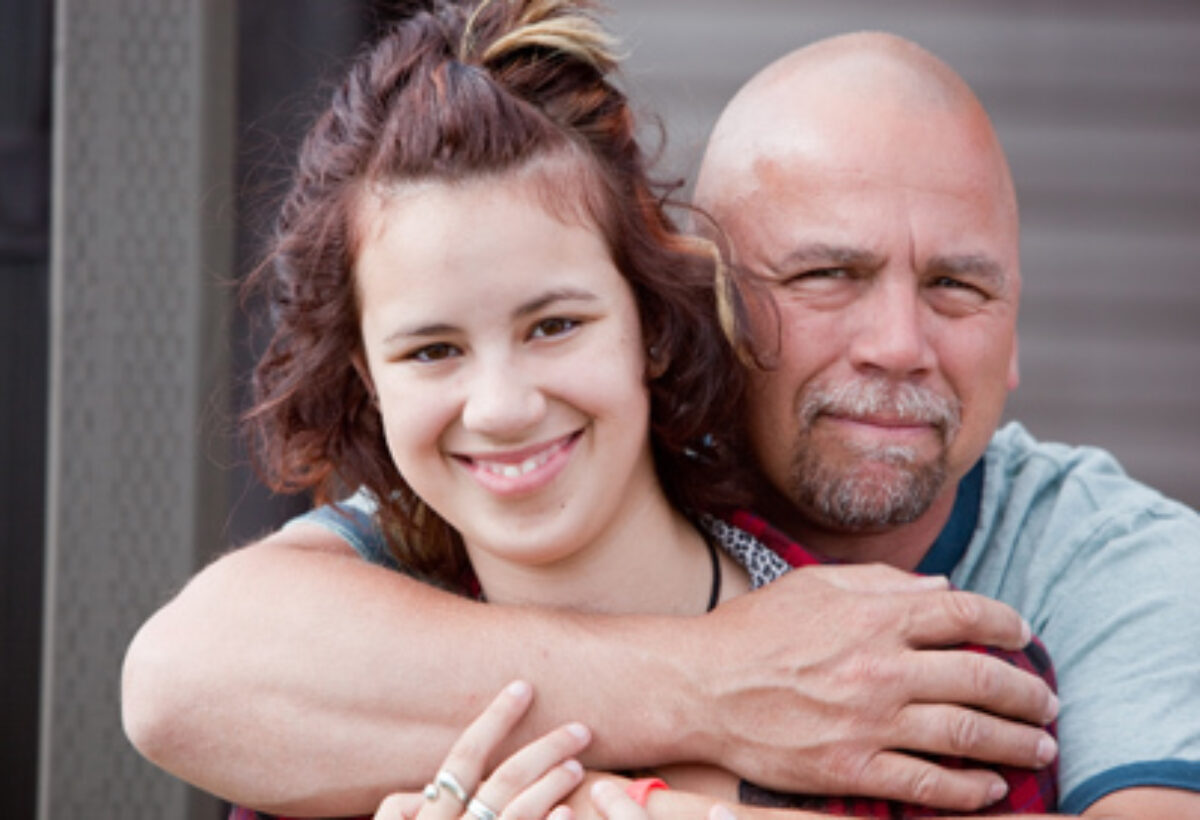Grande Prairie student saves father’s life

When Rob came home one night feeling nauseous with a bit of pain in his chest, he firmly told his 15-year-old daughter Renee that he was fine.
Having had health problems in the past, 44-year-old Rob decided he would shrug off his discomfort and wait until morning.
Renée wasn’t convinced that would be the best course of action.
“He said he was nauseous and his arm was numb,” said Renée, who recalled these as signs and symptoms of a heart attack, which she had learned just weeks before in the ACT High School CPR Program.
“He said he wasn’t having a heart attack,” said Renée. “But I remembered my teacher telling me that the biggest sign is denial.”
“I was getting numb in my hands and arm and I just kind of shrugged it off and figured I could put up with a bit of pain overnight,” said Rob. “If it got worse I would just go to the hospital the next day.”
“I started vomiting a bit, so I went straight to bed to get some rest,” said Rob. “I’m only 44 – I thought I was too young to have a heart attack.”
After consulting a family friend who was a nurse, Renée knew she should follow her hunch: she called 911.
“He looked quite flushed, really pale, and sweaty,” said Renée. “I could feel my heart in my throat, and I knew I had to do something.”
The paramedics arrived quickly and went straight in to Rob’s bedroom to wake him up.
“I had dozed off and the next thing I know there is this lady shaking me saying ‘Rob;, are you okay?’” he recalled.
Rob was immediately rushed to the hospital.
“It is hard to say what would have happened if she didn’t call 911,” said Rob. “The doctor said I could have felt better and then had a full-blown heart attack the next day. He also said I could have died in my sleep.”
Rob said his whole family is very proud of Renée.
“I think it is amazing for her to just ignore my requests and take it upon herself to call 911,” said Rob. “That is very mature, for a 15-year-old.”
Renée has had aspirations of becoming a nurse for years, so she said she was very excited to learn the ACT High School CPR Program.
“It was a really easy, important class,” said Renée, adding that she now tells other students her story to stress how important learning CPR is.
Renée’s phys-ed teacher, Nicole, said that everyone at the school is very proud of how she was able to use the knowledge she learned in the program to save her father’s life.
“She learned what we taught in class and she remembered it when she needed to,” said Nicole. “I think it is just fabulous.”
“I just really hope that kids pay attention,” said Renée. “It may not seem important at the time, but things like this happen every day.”
The ACT High School CPR Program was made possible in Grande Prairie Composite High School, thanks to the generous support of ACT’s Alberta partners: the STARS Foundation, a founding partner for the program, and Alberta Education. Mannequins and curriculum resources were donated to the school and teachers are trained as CPR instructors for their students.
Also responsible are ACT’s core partners, companies in the research-based pharmaceutical industry: AstraZeneca, Bristol-Myers Squibb Canada, Pfizer Canada and sanofi-aventis. They provide ACT’s sustaining funding and are committed to the Foundation’s Alberta program and national goal of promoting health and empowering Canadians to save lives.
The Advanced Coronary Treatment (ACT) Foundation is an award-winning, national charitable organization dedicated to establishing CPR in high schools across Canada. ACT raises funds to donate mannequins, teacher training, manuals and other materials to schools and guides schools in program set-up and long-term sustainability. Teachers teach CPR to their students as a regular part of the curriculum. More than 900,000 youth have been trained in CPR through this lifesaving program to date.
